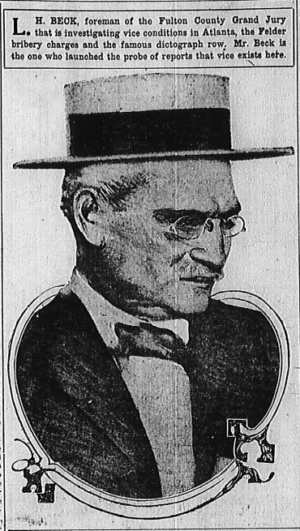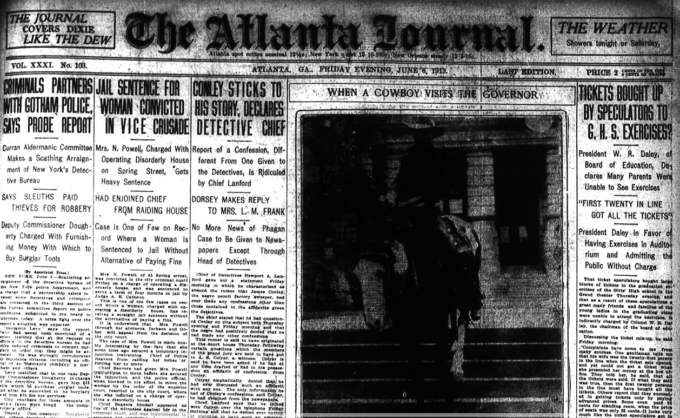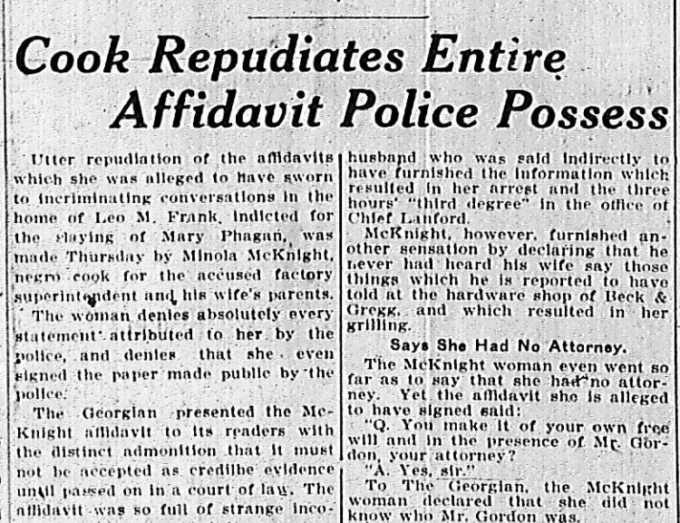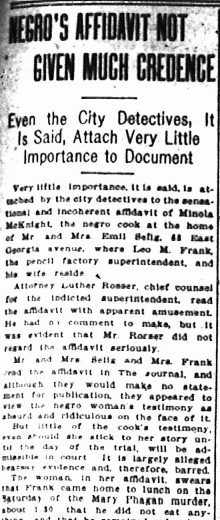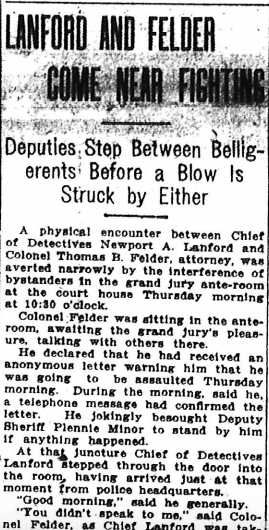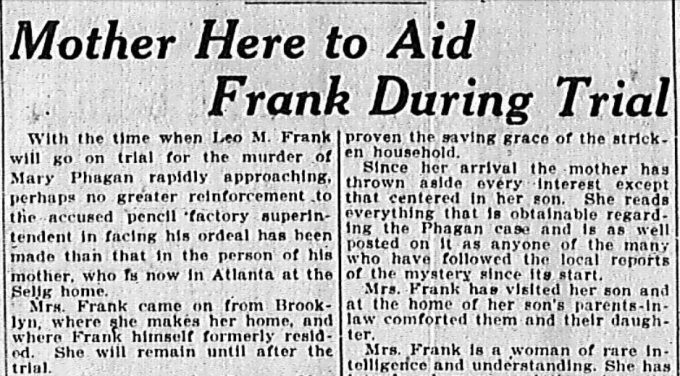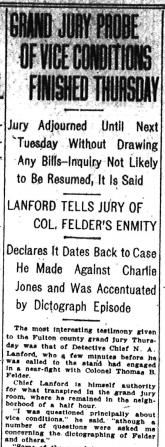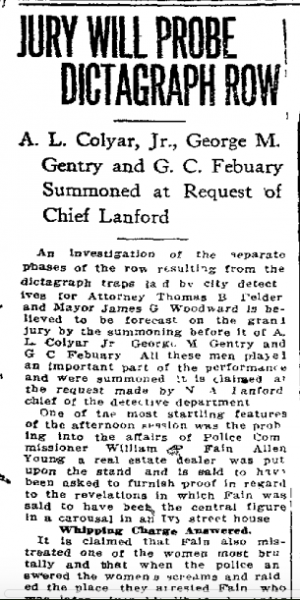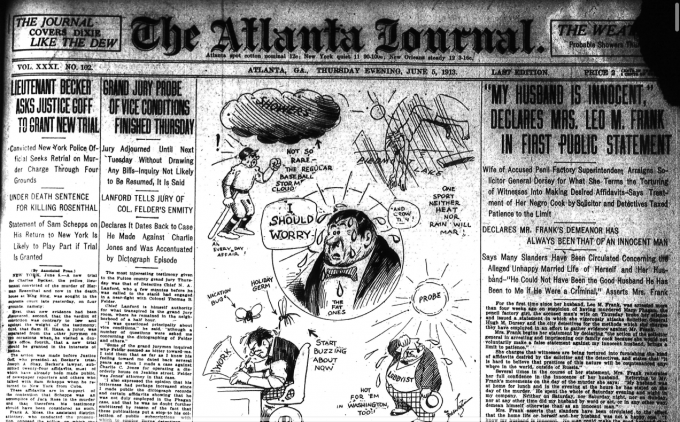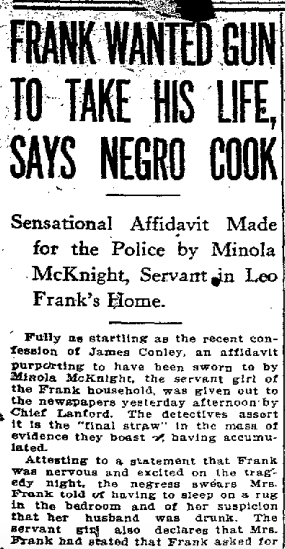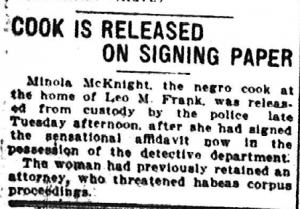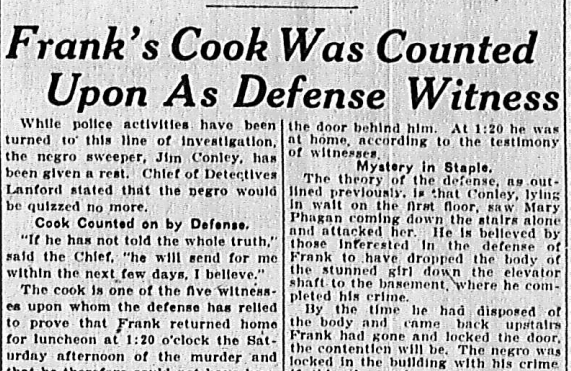 Another in our series of new transcriptions of contemporary articles on the Leo Frank case.
Another in our series of new transcriptions of contemporary articles on the Leo Frank case.
Atlanta Journal
Friday, June 6th, 1913
Mrs. N. Powell, Charged With Operating Disorderly House on Spring Street, Gets Heavy Sentence
HAD ENJOINED CHIEF FROM RAIDING HOUSE
Case is One of Few on Record Where a Woman Is Sentenced to Jail Without Alternative of Paying Fine
Mrs. N. Powell, of 95 Spring street, was convicted in the city criminal court Friday on the charge of operating a disorderly house, and was sentenced to serve a term of four months in jail by Judge A. E. Calhoun.
This is one of the few cases on record where a woman, charged with operating a disorderly house, has received a straight jail sentence without the alternative of paying a fine.
It is understood that Mrs. Powell through her attorneys, Jackson and Gober, will appeal from the decision of the city court.
The case of Mrs. Powell is made doubly interesting by the fact that she some time ago secured a temporary injunction restraining Chief of Police Beavers from raiding her house or forcing her to move.
Chief Beavers had given Mrs. Powell instructions to move before she secured the injunction, and the police official, when blocked in his effort to move the woman by the order of the superior court, resorted to the city court, where she was indicted on a charge of operating a disorderly house. Continue Reading →


